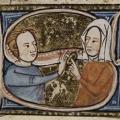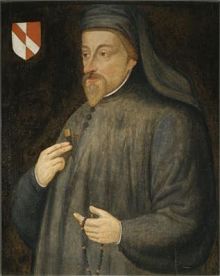292. Say it With Poetry: Chaucer and Langland
Philosophical themes in Chaucer’s “Canterbury Tales” and “Troilus and Criseyde,” as well as Langland’s “Piers Plowman.”
Themes:
• F.N. Robinson (ed.), The Works of Geoffrey Chaucer (Boston: 1957).
• A.V.C. Schmidt, Piers Plowman: a New Translation of the B-Text (Oxford: 2009).
• J. Warrington (ed.), Geoffrey Chaucer: Troilus and Criseyde (London: 1974).
• D.N. Baker, “From Plowing to Penitence: Piers Plowman and Fourteenth-Century Theology,” Speculum 55 (1980), 715-25.
• P. Boitani and J. Mann (eds), The Cambridge Companion to Chaucer (Cambridge: 1986).
• A. Cole and A. Galloway, The Cambridge Companion to Piers Plowman (Cambridge: 2014).
• J. Coleman, Piers Plowman and the Moderni (Rome: 1981).
• R. Davis, Piers Plowman and the Books of Nature (Oxford: 2016).
• R. Delasanta, “Nominalism and the ‘Clerk’s Tale’ Revisited,” Chaucer Review 31 (1997), 209-31.
• K. Kerby-Fulton, “Piers Plowman,” in D. Wallace (ed.), The Cambridge History of Medieval English Literature (Cambridge: 1999), 513-38.
• K.L. Lynch, “The Parliament of Fowls and Late Medieval Voluntarism,” Chaucer Review 25 (1990), 1-16 and 85-95.
• K.L. Lynch, Chaucer’s Philosophical Visions (Cambridge: 2000).
• M. Miller, Philosophical Chaucer: Love, Sex and Agency in the Canterbury Tales (Cambridge: 2005).
• R. Stepsis, “Potentia absoluta and the Clerk’s Tale,” Chaucer Review 10 (1975), 129-46.
• D. Strong, The Philosophy of Piers Plowman: the Ethics and Epistemology of Love in Late Medieval Thought (Cham: 2017).







Comments
Add new comment